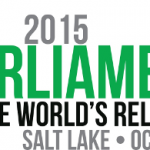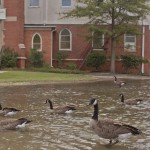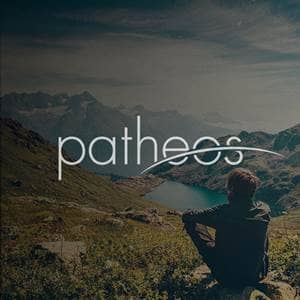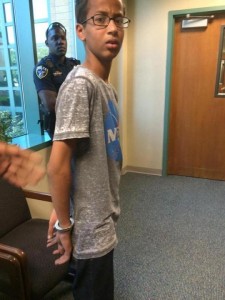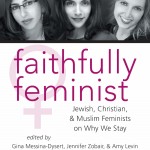NPS: What sort of challenges or learning points did you run into while working with atheists, humanists, agnostics, and anti-theists?
Tahil: By hearing the secular perspectives represented at the SSA meetings I gained an understanding of the disparity between religious and secular views. There were instances where certain religious and secular voices in the room would void the legitimacy of the other. Using judgments of their own standards and creating a wall of division. In fact, I remember meeting several people, friends and strangers alike, who assumed a depravity of innovation, science, logic, and reason on my part, just for my being religious (as if their union was impossible). The blame on religion itself as the cause for the problems of the world also seemed like a common theme that managed to put the secular mindset on a pedestal in comparison to others. I believe having difficult discussions is important, but the belittling nature of certain comments had me feeling uneasy at times. However, I didn’t let this deter me from continuing such interfaith work.
When it comes to all the secular people I have met, I have butted heads most with anti-theists, only for the reason that some act similarly to religious extremists. Such individuals held erroneous assumptions and prejudices about religious believers. They assumed the worst of a people without really getting to know them. They painted all the people of a community with the color of a single brush. Experience with such people made me realize that every community has its naysayers and negative extremes. But I feel this only proved how atheists, agnostics, and anti-theists are just as human and complex as any other group.
NPS: At this point, Tahil told me a story about an interfaith peace vigil held on his campus. It was in response to the Chapel Hill Shooting which took the lives of three young Muslims in North Carolina: Deah Shaddy Barakat, Yusor Mohammad Abu-Salha, and Razan Mohammad Abu-Salha. The killer was an atheist and anti-theist. Tahil spoke of a friend who happened to be a staunch atheist. The friend attended the vigil and was taken aback by the gathering of the interfaith community on campus. He had always been skeptical of such events. But for the first time, his friend felt a shared solidarity with the Muslim community. Similar to how Muslims have been demonized in the U.S., his friend was now experiencing the dehumanization of atheists. He was hopeful to see various groups mobilize their events and to aid one another in times of need.
NPS: As we wrap up this interview…Do you have any advice to give to those working to bridge the secular/religious divide?
Tahil: There was a lot to be learned from my interactions on the La Verne campus, but I will offer up 3 points here:
1) Religious and secular people can get along. No question about it. The fact of climate change, a scientific phenomenon that has been empirically tested by our own standards, shows we are impacting our earth negatively. Religious people should not and cannot disagree with this because it is our own traditions that tell us the importance of caring for our earth at all costs. There is an opportunity here for communities to be in dialogue, as well as to share in joint action to combat climate change.
2) Science, for those who are righteous in their faith, is God’s work. We must not forget the impact of religious communities, past and present, and their role in developing the world of science. We should remember the Hindu practitioners and scientists Aryabhata and Brahmagupta, founded the numerical and mathematical concepts of zero. We should remember the Golden Age of Islamic civilization that built the fields of astronomy and medicine. One cannot limit advancement by a single source; it always requires the support and understanding of a deeper and more complex story. I would love to see secular communities celebrate such milestones in human history, along with other scientific advancements.
3) Factions and fringe groups do not define the whole. Although this seems really obvious, media and mindsets fail to accurately depict the complexity of our world. If Al Qaeda, ISIS, and Boko Haram do not define all of Islam, then it should also not be said that people who are secular are lacking moral compasses or a sense of being or purpose in the world. Let us stop with proving our own perfection and look towards understanding each other’s humanity.

